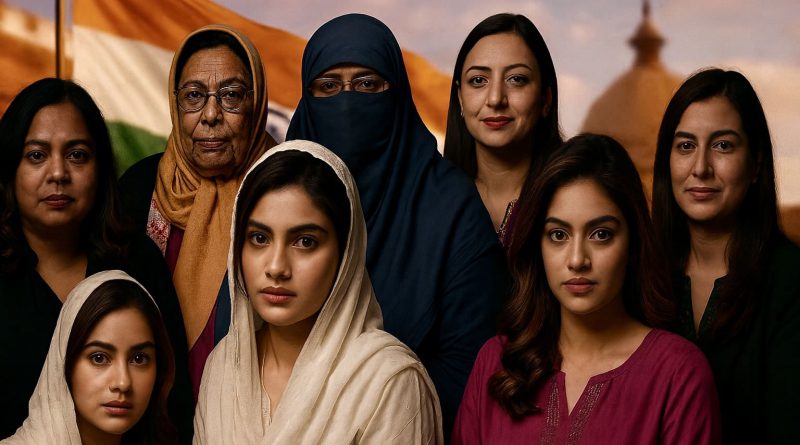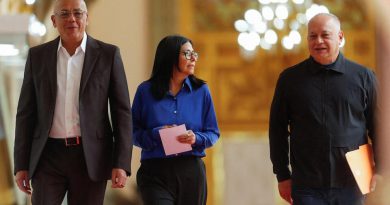Muslim Women in India: Champions of Progress and Inclusion
As they continue to excel in various fields, Muslim women reaffirm that India’s progress is collective and inclusive.
In the vibrant fabric of Indian society, Muslim women are increasingly emerging as formidable leaders, advocating for their rights and driving social change. Their contributions span various sectors—from politics and education to social activism and entrepreneurship—serving as a testament to their resilience and determination.
At a time when conversations around representation, equality, and inclusion dominate India’s political and social discourse, Muslim women stand at the forefront, challenging stereotypes and creating pathways for greater participation. This article highlights the journeys of several remarkable Muslim women who have made significant strides in advocating for gender equality and political engagement, underscoring their pivotal roles as catalysts for change in contemporary India.
Political and Societal Trailblazers
One of the most influential figures in Indian politics is Mehbooba Mufti, the former Chief Minister of Jammu and Kashmir and president of the Jammu and Kashmir Peoples Democratic Party (PDP).
Mufti’s leadership has not only provided a platform for addressing pressing regional issues but has also set a precedent for women’s participation in politics in a conflict-ridden state. As the first woman to hold the Chief Minister’s office in Jammu and Kashmir, she shattered a deep-rooted gender barrier and symbolized hope for many young women in the region.
During her tenure, she championed initiatives aimed at women’s empowerment, advocating for policies that enhanced education, healthcare, and safety for women. Her governance also emphasized dialogue, peace-building, and social cohesion in a region long defined by political instability. Mehbooba Mufti’s journey exemplifies the potential of Muslim women to occupy pivotal political roles, challenge deeply entrenched stereotypes, and inspire future generations to participate in governance and leadership.
Another notable politician is Nusrat Jahan Ruhi, a Member of Parliament from the Trinamool Congress party. A young and dynamic leader, Jahan has actively participated in legislative discussions concerning women’s rights, social justice, and economic empowerment.
Despite facing criticism and scrutiny for her modern lifestyle and political choices, she has consistently stood firm in representing progressive voices within her community. Her contributions highlight the significance of Muslim women in the political arena, urging others to follow suit in championing the rights of marginalized communities.
Equally remarkable is Iqra Hassan, the young parliamentarian from Kairana, Uttar Pradesh, who represents a new generation of leadership. Coming from a family with a strong political legacy, Iqra has quickly established herself as an articulate and effective voice in the Lok Sabha.
Her election reflects not only the growing participation of Muslim women in mainstream politics but also the confidence Indian voters place in women leaders from diverse backgrounds. By focusing on issues of development, education, and women’s empowerment, Iqra embodies the spirit of a modern, inclusive India where young women are active partners in governance and nation-building.
Similarly, Syeda Anwara Taimur, though from an earlier generation, holds a historic place in Indian politics as the only woman to have served as the Chief Minister of Assam (1980–81). Her leadership at a time when female political participation was still limited serves as a lasting inspiration. Even decades later, she continues to be remembered as a pioneer who proved that Muslim women could lead states and command respect in political circles.
Beyond elected representatives, voices like Dr. Asma Zehra Tayeba, a senior member of the All India Muslim Personal Law Board, play an important role in shaping social and policy debates through public discourse. As a respected educationist and community leader, she has consistently emphasized the importance of women’s education, health awareness, and family welfare within the constitutional framework of India.
By engaging in seminars, interfaith dialogues, and national conferences, Dr. Zehra contributes to constructive discussions that strengthen India’s democratic traditions. Her work reflects how Indian Muslim women are not only preserving cultural identity but also aligning it with the nation’s broader vision of inclusive growth and social harmony.
Together, these trailblazers demonstrate that Muslim women are increasingly visible in India’s political life—not just as symbolic figures but as substantive contributors who bring both gender and minority perspectives into governance and policy making.
Shabana Azmi, an acclaimed actress and social activist, has been a tireless advocate for gender equality and women’s rights. Through her influential work in film and theater, she has brought attention to the struggles faced by women, particularly in conservative societies. Azmi co-founded the Mijwan Welfare Society, which focuses on empowering women through education, vocational training, and skill development.
Her activism has extended to political spaces as well, where she emphasizes the importance of women’s participation in the political process to ensure that their voices are adequately heard.
Farah Naqvi, a prominent activist and member of the National Commission for Women, has been deeply engaged in raising awareness about gender-based violence and discrimination. Naqvi’s role in advocating for legislative changes—such as stronger anti-domestic violence measures and improved implementation of laws against sexual harassment—has made her a respected voice in the women’s rights movement.
Educational Reform and Empowerment
Muslim women leaders such as Zakia Soman, co-founder of the Bebaak Collective and the Bharatiya Muslim Mahila Andolan (BMMA), have made education a central focus of their activism. She has been a strong voice in debates surrounding discriminatory practices, directly engaging with India’s legal and political systems. Her advocacy was instrumental in bringing the issue of instant divorce before the Supreme Court, leading to a landmark judgment that declared triple talaq unconstitutional.
In Kerala, women educators like Ayisha Nafeesa have worked within madrasa reforms, blending modern curricula with traditional education to create space for girls in learning environments that once excluded them. These efforts show how education is a deeply political act—it not only empowers individuals but also shifts the dynamics of community leadership and participation in governance.
Media and the Arts: Shaping Political Discourse
India’s pluralistic and democratic spirit has fostered an environment where Muslim women are emerging as dynamic leaders—championing equality, representation, and nation-building across sectors. They are not silent bystanders; they are shaping India’s evolving tapestry with resilience, vision, and purpose.
Shehla Rashid Shora—a proud Kashmiri—embodied youthful leadership during her tenure as Vice President of Jawaharlal Nehru University Students’ Union. She spearheaded the influential “Occupy UGC” campaign, campaigning for fairer scholarship policies and graduate student rights. Her fearless advocacy extended to supporting Kashmir’s first all-girl band, Pragaash, when they faced hate speech and pressure—highlighting her commitment to cultural freedom and artistic expression.
Over time, Shehla’s journey transitioned towards constructive engagement with India’s democratic institutions, with public appreciation for nationwide development initiatives. She also curated Role Models: Inspiring Journeys of Indian Muslims, shining a light on Muslim Indians contributing to science, sports, arts, and more—realigning the narrative from stereotypes to national pride.
Amana Begam Ansari enriches India’s media landscape as a columnist for ThePrint, a TV news panelist, and host of the show India This Week by Amana & Khalid. In her powerful pieces, she illustrates how Indian Muslims benefit from—and actively contribute to—a secular, progressive nation much different from the restrictive norms found elsewhere. She emphasizes that Indian Muslims enjoy freedoms—from personal choices to civic engagement—that reflect the country’s commitment to plurality.
Tehmeena Rizvi lends her analytical voice to national discourse through policy-making and research. As a respected policy specialist, she has contributed to the Indian Council of Social Science Research (ICSSR), worked on projects like the Amrit Kaal Vimarsh lecture series (covering topics such as women’s empowerment/Nari Shakti and infrastructure), and studied implementation of child protection laws in Delhi-NCR.
Tehmeena has also represented India at multiple sessions of the United Nations Human Rights Council in Geneva, advocating for women’s rights—especially those from conflict-affected regions such as Jammu & Kashmir. Her opinion articles, including a recent one in Indian Express, underscore India’s balanced and principled foreign policy, reflecting her deep engagement with nuanced development narratives
Grassroots Movements and Community Leadership
At the grassroots level, Muslim women leaders like Khadija Khan have emerged as strong voices against domestic violence and systemic oppression. Her initiatives focus on providing legal aid, shelter, and psychological support for women who face abuse, linking these efforts to broader demands for legal and political reform.
Similarly, Nida Khan, an activist from Uttar Pradesh, has been vocal against child marriage and instant divorce or Triple Talaq. She uses political mobilization—marches, petitions, and campaigns—to bring women together and demand justice.
These grassroots leaders embody political engagement at the community level, proving that politics is not only practiced in parliaments and assemblies but also in villages, mohallas, and local organizations where real change begins
The contributions of Muslim women in India are diverse and transformative, reflecting the strength of the world’s largest democracy in fostering equality and opportunity. From politics and education to activism, policy-making, and entrepreneurship, these women are not only uplifting their own communities but also contributing meaningfully to the broader national narrative of growth and inclusion.
Their journeys highlight the empowering environment that India provides—where women from every background can lead, innovate, and thrive. By embracing education, civic engagement, and leadership, Muslim women are becoming vital partners in nation-building, showcasing how India’s democratic and secular framework creates space for all to succeed.
As they continue to excel in various fields, Muslim women reaffirm that India’s progress is collective and inclusive. Their leadership and advocacy strengthen the very fabric of the Republic, ensuring that the principles of equality, justice, and opportunity remain cornerstones of the Indian story. In a nation as diverse as India, their voices are not just crucial—they are proof that every citizen has the potential to shape a brighter and more united future.


